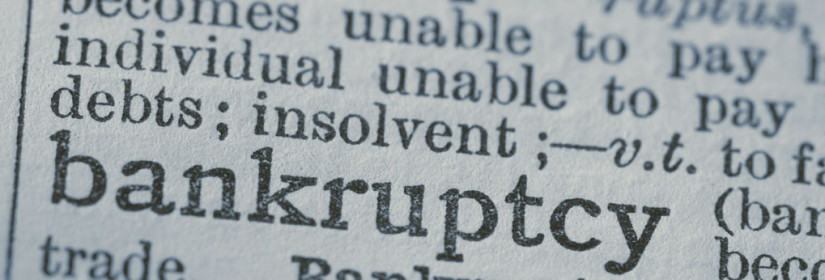Bankruptcy Demystified: Understanding Chapter 7, 11, 12, and 13 Terminology

If you've ever found yourself wading through bankruptcy-related information and stumbling over unfamiliar terms, you're not alone.
Legal terminology can be a bit like a foreign language at times. That's why we've compiled this list of terms related to Chapters 7, 11, 12, and 13 of the bankruptcy code.
Think of it as your no-nonsense reference guide to help you navigate through the complexities of bankruptcy law with ease.
Let's get started and shed some light on those unfamiliar terms.
Chapter 7 Bankruptcy
Chapter 11 Bankruptcy
Chapter 12 Bankruptcy
Chapter 13 Bankruptcy
Now, are you ready to solve your problems in bankruptcy? Worry no more!
Start moving forward with our articles:
Featured Image Source: Smith and Partners Lawyers
Legal terminology can be a bit like a foreign language at times. That's why we've compiled this list of terms related to Chapters 7, 11, 12, and 13 of the bankruptcy code.
Think of it as your no-nonsense reference guide to help you navigate through the complexities of bankruptcy law with ease.
Let's get started and shed some light on those unfamiliar terms.
Chapter 7 Bankruptcy
- Liquidation: The process of selling a debtor's nonexempt assets to repay creditors.
- Means Test: A calculation used to determine if a debtor qualifies for Chapter 7 bankruptcy based on their income and expenses.
- Discharge: The legal release of a debtor from personal liability for certain debts, typically occurring at the end of a Chapter 7 bankruptcy case.
Chapter 11 Bankruptcy
- Reorganization: The restructuring of a debtor's finances and operations to allow them to continue operating while repaying creditors under a court-approved plan.
- Automatic Stay: A provision that halts most collection actions by creditors upon filing for Chapter 11 bankruptcy, providing the debtor with temporary relief from creditor harassment.
- Debtor-in-Possession (DIP): A term used to describe a company that continues to operate its business while under Chapter 11 bankruptcy protection.
Chapter 12 Bankruptcy
- Family Farmer or Fisherman: Individuals or families engaged in farming or fishing operations who qualify for relief under Chapter 12 bankruptcy.
- Farm Debt: Debt incurred in connection with a farming operation, including loans for equipment, land, and agricultural supplies.
- Cramdown: A legal mechanism that allows a debtor to reduce the principal balance of certain secured debts to the current market value of the collateral.
Chapter 13 Bankruptcy
- Repayment Plan: A detailed proposal developed by the debtor outlining how they intend to repay creditors for three to five years.
- Trustee: An individual appointed by the court to oversee the Chapter 13 bankruptcy case, review the debtor's repayment plan, and distribute funds to creditors.
- Disposable Income: The amount of income left over after deducting reasonable living expenses and necessary payments, which is used to repay creditors under the Chapter 13 repayment plan.
Now, are you ready to solve your problems in bankruptcy? Worry no more!
Start moving forward with our articles:
- Deciphering the United States Bankruptcy Code: A Comprehensive Overview
- Understanding Chapter 7 Bankruptcy: A Step-by-Step Guide
Featured Image Source: Smith and Partners Lawyers








